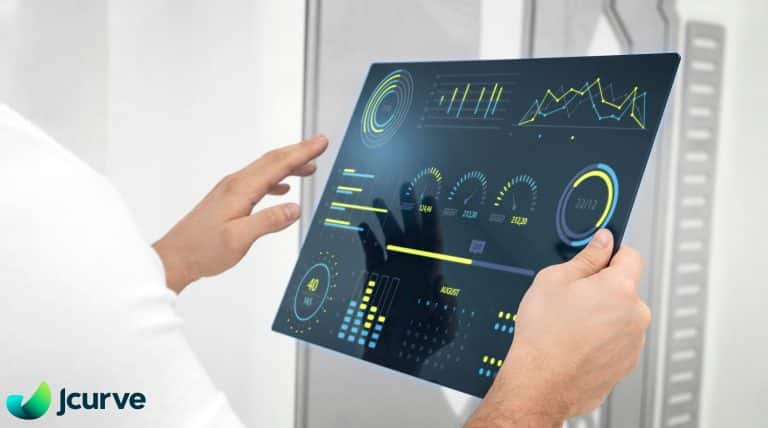Many business owners have heard about small business ERP software but aren’t always sure when it’s right time to start using an ERP system. Unlike forgetting to pay a bill, there’s no red flag to tell you when you’re overdue for a small business ERP system. It’s often less obvious alerts like gradually increasing frustrations with stand-alone systems and manual processes getting in the way of your day-to-day operations. Your staff may be rekeying or transferring data from one system to another, or spending a lot of time producing accurate business reporting.
In short, when you notice your staff are becoming short of time it can be a sign that it’s becoming time – for an ERP system.
Some of the warning signs you’re overdue for a small business ERP system


- Maintaining data separately in multiple systems is taking a lot of time and effort.
- Double-entry of data from one system to another has become the norm, rather than the exception.
- Inventory is being managed using spreadsheets.
- Important documents and files are kept on individual’s desktop computers or laptops and aren’t accessible to everyone.
- When one of your staff is out of the office or on leave, no one else knows what’s happening with their customers or accounts.
- You don’t have a central record of customer interactions, conversations, or appointments and follow-up calls with your customers.
- Physical paperwork around the office is growing out of control.
- Sales forecasting has become part data-based and part guesswork.
- Business reporting takes a lot of time to create and contains data that’s days or weeks old by the time you receive it.
- Your business position isn’t always clear, and you find yourself making decisions based on historical data, rather than real-time data.
What can a small business ERP system do?
Imagine you’re managing a dozen different email inboxes. Each inbox handles one part of the business – one for sales, one for finance, one for customer support, and so on. You’re constantly needing to check each inbox so knowing which messages to prioritise becomes almost impossible.
Now imagine how efficient it would be to manage a single inbox and simply categorise requests for each part of the business. With one inbox, prioritisation becomes much faster and easier, and you can see what’s happening across each department.
At a basic level, this is what ERP software for small business can do – simplify your processes, empower your business to be more efficient and, from there, help it grow. But it’s also a lot more than that. See our short, 2-minute explainer video below to see what ERP software can do or have a read of our article What is ERP Software? for more in-depth information.
“This is what ERP software for small business can do – simplify your processes, empower your business to be more efficient and, from there, help it grow.”
Is an ERP system the only solution?
With the rise of cloud technology, the number of small business software vendors has quickly multiplied. Cloud delivery has made business software more affordable and accessible to small businesses.
While a cloud ERP for small businesses isn’t the only solution, it is the most efficient. With one database managing all core functionality, there’s no need for double-entry of data from one system to another. With everyone accessing the same information, it removes the need for locally stored files and provides real-time visibility on customer interactions, reporting, and business performance data. Your important business data becomes accessible wherever you are, whenever you need it.
Cloud-based small business accounting software is another option but doesn’t provide the cross-department functionality and real-time visibility that a cloud ERP does. Most accounting software packages rely on integrations with other systems to manage other core functions such as inventory, CRM (Customer Relationship Management), eCommerce and so on.
True cloud ERP small business software gives you everything in the one application. It also gives you access to powerful dashboards and KPI meters, accessible all from the one screen, which help you make sense of your data and give you insights into sales, operational, and financial trends. There’s no need to draw information from multiple systems to collate accurate business reporting – it’s already in the one, unified system.
Is small business ERP the same as big business ERP?


With the rapid adoption of cloud technology, cloud ERP software has provided accessibility to businesses of all sizes. Cloud-based systems can now give the same ERP functionality without expensive server equipment, IT professionals or physical security measures. All of that is handled by the ERP vendor with secure, 24/7 system access provided to users with robust encryption and software security policies.
Some of the global ERP vendors, such as NetSuite, have been delivering cloud-based solutions for many decades now. JCurve ERP is a small business edition of NetSuite that has been taken the best of enterprise-level software and made it accessible to the SMB market. By cutting back more advanced, enterprise-level functions which small businesses don’t need, SMBs can leverage the same ERP platform as enterprises to grow their business. With a seamless upgrade path to a NetSuite edition as they continue to grow, it also becomes the first and only cloud ERP system that small businesses need.
The benefits of cloud ERP for small business
Small businesses are now able to adopt refined business processes that have been tried and tested by large organisations using ERP systems for many years. Using an ERP isn’t just about the software, but also about the business processes behind it. And this means gaining all the efficiencies uncovered by those who have helped refine the processes behind the ERP.
Some of the immediate benefits that cloud ERP software for small business can deliver include:
- Leveraging the same best practice processes implemented by enterprise organisations
- Using single-source data that reduces double-entry and errors with rekeying
- Automation that reduces manual, repetitive work
- Delivery of a more consistent customer experience, with real-time visibility on customer interactions; whether customers are dealing with your sales team, customer service or finance
- Access to dashboards and KPIs allowing you to see your business position at a glance and make agile decisions
“Using an ERP isn’t just about the software, but also about the business processes behind it.”
Finding the right cloud ERP software provider for your small business
Not all cloud ERP providers are created equally. Some have been in the game for a long time and have a wealth of experience behind them. Some have local, Australian-based implementation and support resources. And some even have rapid implementation processes to get you up and running quickly.
Here’s a shortlist of what you should find out from an ERP provider:
- How long have they been in business?
- Can they give you thorough detail about their implementation process?
- Do they have local implementation and support resources? Or will you be dealing with people overseas once the sales process is completed?
- What’s the total expected implementation time? Can they be flexible to fit in with your timeframes if needed?
- Do they have an online knowledge base to help you with using the system whenever you need it?
These are some of the big questions but for more detail about choosing the right cloud ERP provider for your needs, see our article What You Need to Know (When Choosing ERP Software).
If you’re noticing that your staff are becoming short of time, start having a closer look at the systems and processes they’re currently using. Are they working with multiple, different systems, double-entering data between them? Are they using spreadsheets to track inventory and keeping important files and documents on local PCs and laptops? Can you see up-to-date records of customer interactions whenever you need to?
These are some of the subtle red flags that the small business software you’re using today may be slowing you down, rather than making things more efficient. If that’s the case, you’re almost certainly overdue for a small business ERP system.
To find out more about a small business ERP solution that’s right for your needs, get in touch and start a conversation. You can also give us a call directly on 1800 528 783 for a quick, initial chat about your business and the challenges you’re experiencing right now.
Also get the Small Business Playbook for more ideas on empowering your small business growth.









